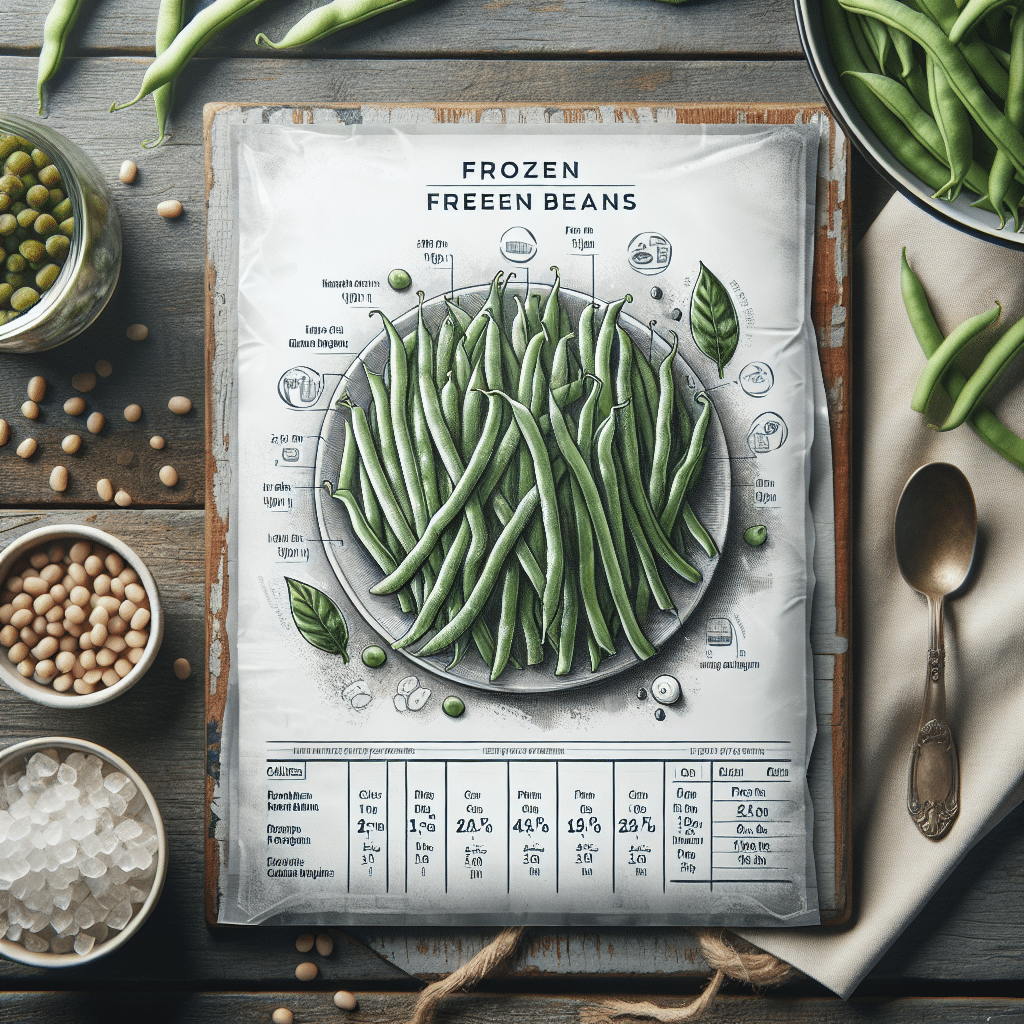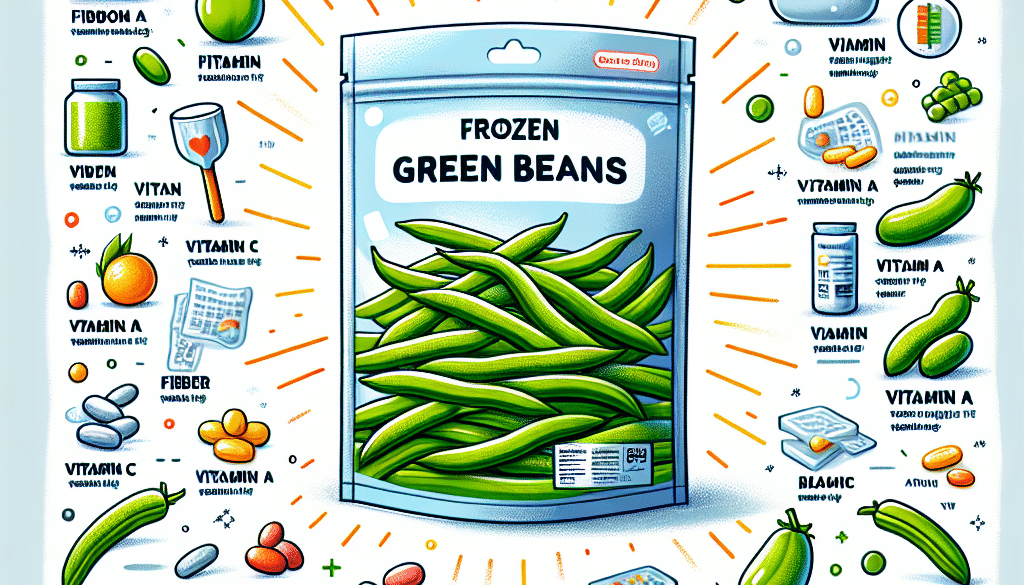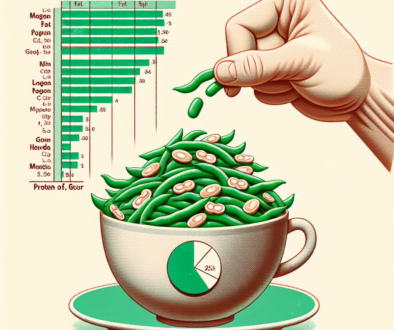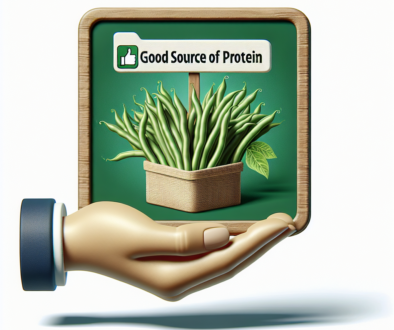Nutritional Guide to Frozen Green Beans
-
Table of Contents
- Frozen Green Beans: A Nutritional Powerhouse in Your Freezer
- Understanding the Nutritional Value of Frozen Green Beans
- Comparing Fresh and Frozen Green Beans
- How to Select and Store Frozen Green Beans
- Preparing and Cooking Frozen Green Beans
- Incorporating Frozen Green Beans into Your Diet
- Health Benefits of Eating Frozen Green Beans
- Recipes and Serving Ideas for Frozen Green Beans
- Conclusion: Embrace the Convenience and Nutrition of Frozen Green Beans
- Discover ETprotein’s High-Quality Protein Products
Frozen Green Beans: A Nutritional Powerhouse in Your Freezer

Frozen green beans are a staple in many households, offering convenience, nutrition, and versatility. This nutritional guide will delve into the benefits of frozen green beans, how they compare to their fresh counterparts, and the best ways to incorporate them into a healthy diet. With a focus on their nutritional profile, preparation methods, and storage tips, this article aims to provide valuable insights for anyone looking to make the most out of this frozen vegetable.
Understanding the Nutritional Value of Frozen Green Beans
Green beans, also known as string beans, are a popular vegetable that is low in calories but high in essential nutrients. When frozen, green beans retain most of their nutritional value, making them an excellent choice for those seeking a healthy diet. Here’s a breakdown of the key nutrients found in frozen green beans:
- Vitamins: Green beans are a good source of vitamins A, C, and K, as well as several B vitamins.
- Minerals: They contain important minerals like calcium, iron, magnesium, and potassium.
- Fiber: Green beans are high in dietary fiber, which is beneficial for digestive health.
- Antioxidants: These vegetables are rich in antioxidants, which help combat oxidative stress and inflammation.
- Low Calorie: With only about 30 calories per cup, green beans are a low-calorie addition to any meal.
Comparing Fresh and Frozen Green Beans
When it comes to nutrition, many people wonder whether fresh vegetables are superior to frozen ones. The truth is that frozen green beans can be just as nutritious as fresh ones, if not more so in some cases. Here’s why:
- Blanching: Before freezing, green beans are typically blanched, which helps to preserve their color, texture, and nutrients.
- Nutrient Retention: Freezing green beans immediately after harvesting helps to lock in vitamins and minerals that might otherwise be lost during transportation and storage of fresh vegetables.
- Availability: Frozen green beans are available year-round, making it easy to enjoy their nutritional benefits regardless of the season.
- Convenience: With their longer shelf life and ease of preparation, frozen green beans are a convenient option for quick and healthy meals.
How to Select and Store Frozen Green Beans
Choosing high-quality frozen green beans is crucial for the best taste and nutritional value. Look for packages that are free from frost or ice crystals, which may indicate that the beans have been stored for too long or thawed and refrozen. Once home, store the green beans in the freezer immediately to maintain their quality.
Preparing and Cooking Frozen Green Beans
Frozen green beans are incredibly versatile and can be prepared in various ways to suit any dish. Here are some popular methods:
- Boiling: Boil green beans in water for a few minutes until they are tender but still crisp.
- Steaming: Steam them to retain more nutrients and achieve a firmer texture.
- Sautéing: Sauté green beans with a bit of oil and your favorite seasonings for a flavorful side dish.
- Roasting: Roast them in the oven with a drizzle of olive oil and spices for a delicious, caramelized flavor.
Regardless of the cooking method, avoid overcooking to preserve the nutrients and prevent the beans from becoming mushy.
Incorporating Frozen Green Beans into Your Diet
Frozen green beans can be a nutritious addition to many meals. Here are some ideas for incorporating them into your diet:
- Add them to stir-fries, casseroles, and soups for extra texture and nutrients.
- Mix with other vegetables for a colorful and healthy side dish.
- Use them as a base for a green bean salad, tossed with a vinaigrette and topped with nuts or cheese.
- Blend them into smoothies or puree them for a green soup.
Health Benefits of Eating Frozen Green Beans
Eating green beans can offer numerous health benefits, including:
- Weight Management: Their low-calorie content and high fiber make them ideal for weight loss or maintenance.
- Heart Health: The fiber, potassium, and antioxidants in green beans can contribute to cardiovascular health.
- Blood Sugar Control: Their low glycemic index makes them suitable for people with diabetes or those looking to regulate blood sugar levels.
- Bone Health: Vitamin K in green beans is essential for bone health and proper blood clotting.
Recipes and Serving Ideas for Frozen Green Beans
Here are some creative ways to enjoy frozen green beans:
- Green Bean Almondine: Sauté green beans with slivered almonds and lemon zest for a classic French side dish.
- Green Bean Casserole: Combine them with a creamy mushroom sauce and crispy onions for a comforting casserole.
- Asian-Inspired Green Beans: Toss them with soy sauce, garlic, and sesame seeds for an Asian twist.
- Green Bean Salad: Mix with cherry tomatoes, feta cheese, and a balsamic dressing for a refreshing salad.
Conclusion: Embrace the Convenience and Nutrition of Frozen Green Beans
Frozen green beans are a convenient and nutritious option that can be enjoyed year-round. With their impressive nutrient profile, ease of preparation, and versatility in recipes, they are an excellent addition to any diet. By understanding how to select, store, and cook frozen green beans, you can maximize their health benefits and enjoy their delicious flavor in a variety of dishes.
Discover ETprotein’s High-Quality Protein Products
For those looking to complement their healthy diet with additional protein sources, ETprotein offers a range of organic bulk vegan protein and plant proteins. Their products, including Organic rice protein, clear rice protein, pea protein, clear pea protein, pumpkin seed protein, sunflower seed protein, and mung bean protein, are non-GMO, allergen-free, and feature a neutral taste. Ideal for various industries, ETprotein’s proteins are perfect for enhancing meals and supporting a balanced diet.
About ETprotein:
ETprotein, a reputable protein Chinese factory manufacturer and supplier, is renowned for producing, stocking, exporting, and delivering the highest quality organic bulk vegan protein and plant proteins. They include Organic rice protein, clear rice protein, pea protein, clear pea protein, pumpkin seed protein, sunflower seed protein, mung bean protein, etc. Their offerings, characterized by a neutral taste, non-GMO, allergen-free attributes, cater to a diverse range of industries. They serve nutraceutical, pharmaceutical, cosmeceutical, veterinary, as well as food and beverage finished product distributors, traders, and manufacturers across Europe, USA, Canada, Australia, Thailand, Japan, Korea, Brazil, and Chile, among others.
ETprotein specialization includes exporting and delivering tailor-made protein powder and finished nutritional supplements. Their extensive product range covers sectors like Food and Beverage, Sports Nutrition, Weight Management, Dietary Supplements, Health and Wellness Products, and Infant Formula, ensuring comprehensive solutions to meet all your protein needs.
As a trusted company by leading global food and beverage brands and Fortune 500 companies, ETprotein reinforces China’s reputation in the global arena. For more information or to sample their products, please contact them and email sales(at)ETprotein.com today.














